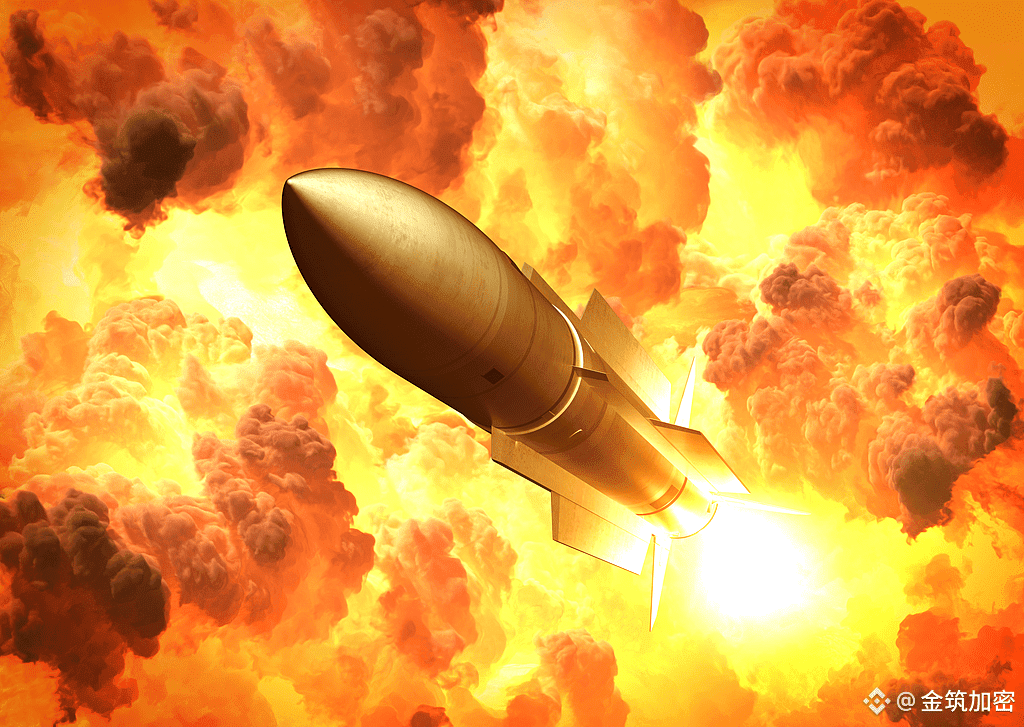Friends, to put it simply, Israel and Iran were originally at a ceasefire, and everyone thought they could take a breather, but Iran suddenly launched missiles at Israel, catching everyone off guard. With geopolitical tensions rising, international oil prices surged, and global stock markets fell; everyone is nervous. To put it bluntly, the risk of war has increased again, and uncertainty has surged.#以色列伊朗冲突

Personal opinion from Jinzhu
I personally believe that this incident essentially sends a signal of 'hedging opportunities' to the crypto market. Why? As geopolitical conflicts escalate, everyone is panicking and looking for a place to hide their money. Bitcoin is like digital gold; when war breaks out, it transforms into a safe haven and can withstand risks. However, ETH, being a highly applicable asset, may exhibit greater volatility, so one must be cautious. Overall, there are opportunities hidden in the chaos of the short term, but don't get carried away chasing highs and lows. My view is: the crypto market is not a battlefield, but it can act as a bulletproof vest; avoid when you should, and charge when you can.

Market Sentiment at the Time
When the missile strikes, global markets explode. The crypto space is also in chaos:
Emotional Tone: Panic and risk aversion, everyone is busy selling risk assets, fearing that the war will escalate and funds will be stuck.
Specific Performance: BTC surged 5% instantly, while ETH fluctuated even more violently, with volatility spiking 20%. Data shows that the fear index skyrocketed from 30 to 60.
Reason: The outbreak of war in the Middle East has led funds to flow into stablecoins and gold, but there are also some people rushing to Bitcoin as a safe deposit box, which reflects the 'fear psychology' effect in the crypto space.
Strategy at the Time
If it were me back then, the strategy would be simple and straightforward: watch more, act less, and buy on dips.
Don't act impulsively chasing highs: once the missile news breaks, BTC might spike and then retreat; avoid betting on getting rich quickly in the short term.
Recommended Actions: Accumulate some BTC or ETH on dips; for example, if BTC falls back below 60,000, buy in batches, and look to accumulate ETH at the 3,500 support level. Alternatively, use 10% of your funds for short-term hedging, such as shorting ETH to hedge BTC holdings.
Risk Warning: Sudden events with high volatility, operate with light positions. If you're really afraid, just hide in stablecoins and wait.

Future Prediction
What’s the next development? Let me make a prediction:
Short-term: If the conflict does not escalate, BTC can stabilize at 105,000, and ETH may rebound to 2,500. But if the war escalates and the market becomes more panicked, BTC could reach 110,000 and ETH could hit 3,000, as the demand for hedging is real. Mid-term: If the ceasefire holds, the market may return to normal, but geopolitical risks become the norm, and BTC could become the new darling of hedging. Jinzhu boldly predicts: BTC breaking 120,000 by the end of the year is not a dream. Key point: Don't underestimate black swan events; if the Middle East becomes chaotic, policies tightening regulations may pressure ETH, making BTC more appealing.
Impact on the Overall Market
This missile event is a 'double-edged sword' for the entire cryptocurrency market:
Positive Impact: When risks are high, Bitcoin's 'digital gold' properties shine! Funds are flowing out of the stock market, with some entering the crypto space, boosting on-chain trading volume and transaction fees.
Negative Impact: Overall market volatility is increasing; altcoins may be sold off. It's normal for small coins to fluctuate 30% in a day, but if the major market falls, the entire market capitalization may shrink by 10%.
Essence: The crypto market's ability to withstand geopolitical risks is improving, but the uncertainty of war is a double-edged sword — it can rise quickly but also fall hard. In the long run, this event could accelerate the recognition of mainstream crypto as 'hard assets.'
Specific Impact on BTC and ETH
Let's talk about these two guys separately:
BTC Impact: BTC has become a hot commodity! Historical data shows that during wartime events, the probability of BTC rising exceeds 70%. Why? It's scarce, decentralized, and inflation-resistant. When missiles strike, the big players rush to BTC for safety. This time, BTC may reach 120,000, becoming the market leader.

ETH Impact: ETH is more correlated with the major market; it has strong applications but is highly volatile — in this event, it might spike briefly but won't be as stable as BTC. Why? ETH's application ecology is affected by the conflict, and when market sentiment is poor, the selling pressure on ETH is heavier. Recommendations: Accumulate at lower levels, but don't rely on it as a primary hedge.

Comparison Summary: BTC is a 'battlefield safe', ETH is a 'volatility amplifier' — positive events favor BTC over ETH.
Do you want to give it a push? Or kick it off the cliff? Brothers stuck, report the cost price! Follow me! Jinzhu will open an escape route for you!

